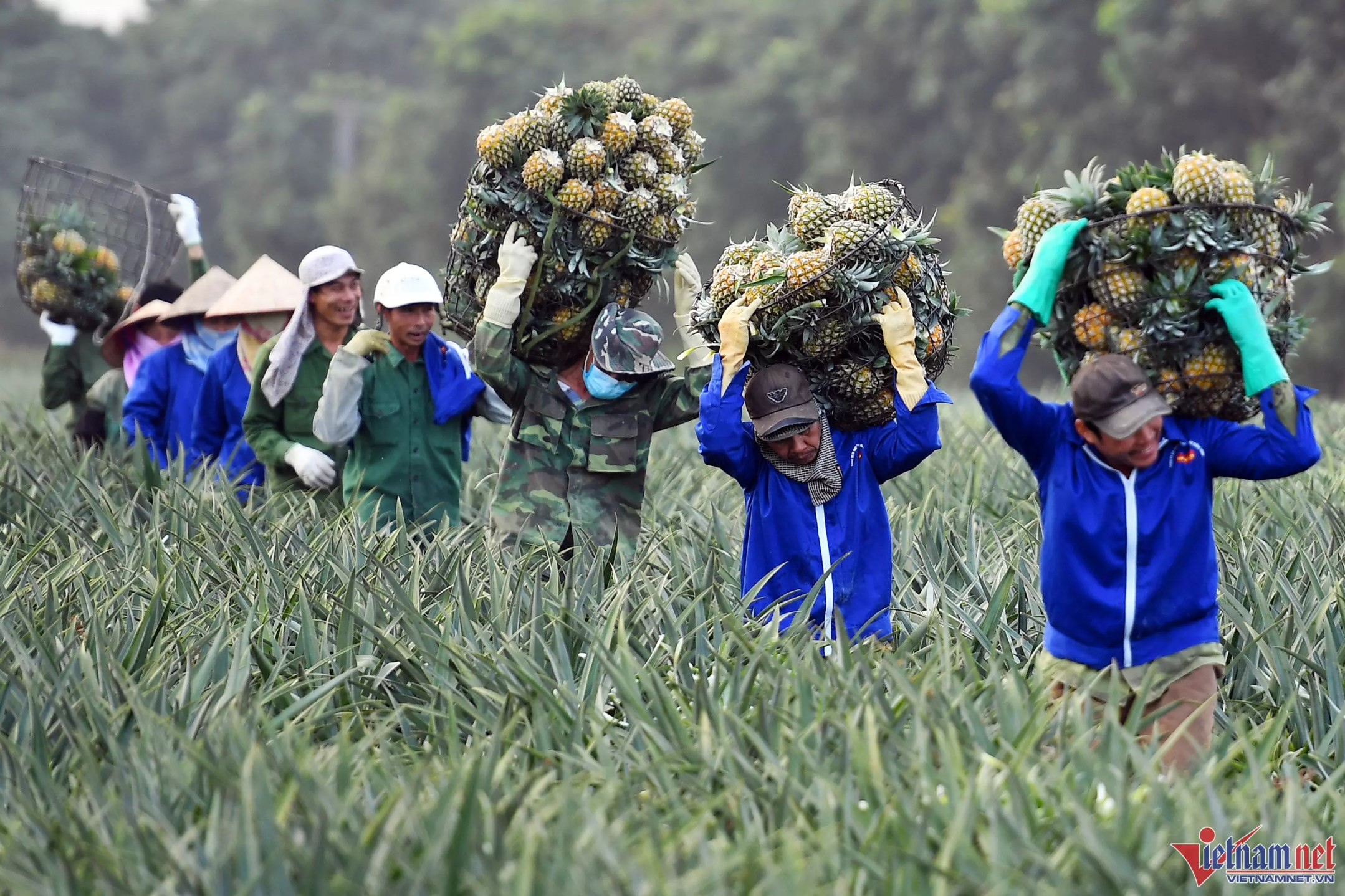
Farmers in the coconut metropolis of Ben Tre are selling dried coconuts at just VND2,000 per kilogram, down from the previous price of VND6,500 a coconut. Many petty merchants and processing workshops have stopped collections and restricted purchases.
According to the Ben Tre provincial Department of Agriculture and Rural Development, the coconut price fell because China, the major export market, is applying a zero Covid policy. Exports to the market have seen a sharp decrease of 80 percent.
Ben Tre has 77,000 hectares of coconut growing area which produces 600 million coconuts a year. The coconut processing industry is valued at VND3.5 trillion. The coconut price reductions, plus fuel and fertilizer price increases, have seriously affected coconut growers.
The provincial authorities have sent a document to the Ministries of Agriculture and Rural Development (MARD), and Industry and Trade (MOIT), asking for help in the consumption of coconut-made products.
Many other types of fruits have also been affected by the zero Covid policy in China.
In late April, in the Cai Be mango "kingdom" in Tien Giang province, the price of Taiwanese variety mango dropped to VND500 per kilogram.
In Co Do district in Can Tho province, Cat Chu mango (the specialty of the province) sold at surprisingly low prices of VND8,000-10,000 per kilogram. Merchants did not collect mangoes even though farmers accepted lower prices.
In the Cam Lam mango area of Khanh Hoa province, mango prices have been falling over the last month. First-class Australian variety mangos are collected at VND12,000-13,000 per kilogram, while second-class are VND4,000-5,000.
Meanwhile, in watermelon growing areas of Gia Lai, Phu Yen and Binh Dinh, the prices have dropped to VND2,000 per kilogram.
China is a major export market for Vietnam’s vegetables and fruits. However, exports to the market are facing difficulties as China tightens its technical barriers and maintains the zero Covid policy.
The General Department of Customs (GDC) reported that as of the end of June 2022, Vietnam had exported $799.7 million worth of vegetables and fruits, a sharp fall of 34 percent compared with the same period last year.
The decrease in exports to China led to a 17.1 percent drop in export turnover of the whole vegetable and fruit sector in H1 compared with the same period last year to $1.68 billion.
Repeated warnings
With 1.5 billion consumers, China is a vast market. Vietnam has geographical advantages when exporting products to the country.
However, experts have repeatedly warned that the Chinese market has changed and it is no longer easy to please. It would be better for Vietnam’s companies to export through official channels rather than via cross border.
In recent years, MARD has been negotiating with China on the export of Vietnam’s vegetables and fruits under official quotas. As of July 2022, 11 Vietnamese fruits have permission to enter the Chinese market.
The granting of full-tax exports of fruits to China shows that the doors for unofficial-quota exports have step by step closed.
In fact, government agencies and economists have warned about this. However, as Nguyen Thanh Binh, chair of the Vietnam Fruit and Vegetable Association, said, businesses still preferred cross-border exports to full-tax exports because of easier requirements. When China tightened control over imports quality, Vietnamese farmers and exporters found it difficult to adapt to the new circumstance.
Agriculture experts think that it’s time for Vietnam’s produce to go straight to the Chinese market by air and sea, not through intermediaries and by road as currently done.
Previously, goods congestion at border gates only happened with dragon fruit and watermelon. But now all products have difficulties in getting customs clearance.
In fact, China’s tightening of technical barriers is applied to all imports, not only imports from Vietnam. Meanwhile, Thai exports to the market are increasing.
Thai durian exports to China, for example, soared from $2.51 billion in 2020 to $3 billion in 2021. In Q1 2022, Thai durian exports rose by 41 percent compared with the same period last year.
In an open letter released July 11 on the occasion of the signing of the protocol on phytosaniary requirements applied to Vietnam’s durian exports to China, MARD Minister Le Minh Hoan stressed that opportunities will only become open if Vietnam’s businesses conform to the regulations and standards set by targeted markets.
Tam An